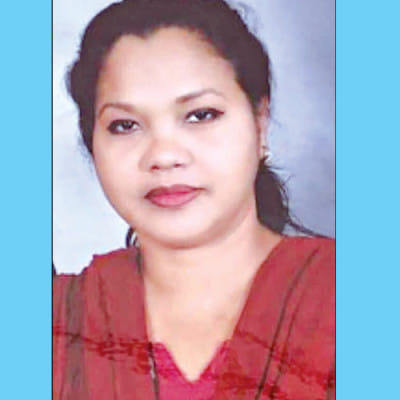‘I can’t even cry, need to stay strong’

At this critical time when people are advised to stay at home, health workers are oath-bound to be on the frontline away from their families most of the time.
Amid constant fears of contracting the virus, they have to keep performing their duties to save lives. But how do they feel? How do they manage their emotion, family life?
"I feel like crying when I see my patients panicking and crying for help … but I can't cry. I need to be strong," said Fulkumari Rozario, a Bangladeshi-American nurse at the state-run Elmhurst Hospital in Queens of New York, the epicentre of Covid-19 pandemic in the US.
The US has so far seen nearly 800,000 Covid-19 cases, the highest by any country in the world. As of yesterday, more than 10,000 people died in New York, and of them, at least 170 were of Bangladeshi origin.
New York is home to nearly four lakh Bangladeshis most of whom live in Queens, one of five boroughs of the city.
Fulkumari, who moved to New York from Bangladesh seven years ago, has been dealing with Covid-19 patients since early March at the 545-bed public hospital, which is now overburdened by such patients.
"Initially, I was afraid of how to handle these patients. But in a couple of days, I got used to it. It became clear to me that I am the one who has to take care of them," the 51-year-old nurse told this correspondent on April 20.
She has to watch over the patients with utmost care and extreme caution. She has to put on personal protective equipment (PPE) and also help the patients wear it.
"I have often seen patients breaking down, panicking and crying. In such cases, I give them moral support and courage, saying there is nothing to fear and that they will be okay."
She helps the patients with exercise, and routinely notify the doctors of their health status.
"I also educate them about what to do and what not to do," said Fulkumari who did her BSC from Dhaka Nursing College and post-graduation from the National Institute of Preventive & Social Medicine in Dhaka.
She mentioned that most of those who died from the virus in New York were aged between 60 and 80, and had complications including heart diseases and diabetes.
Another factor was that they went to hospital at the last stage of infection. Most of those who sought medical help at the early stage of infection recovered, she said.
Fulkumari recalled that a Bangladeshi couple at Bronx, where she lives, died of Covid-19 recently, and the state has taken the responsibility of their two children.
"This is so sad," said Fulkumari, a mother of two, hoping such a tragedy doesn't befall anyone.
She said she strictly maintains physical distancing and hygiene practices both at her workplace and home because any mistake at this trying time could have serious consequences.
"My husband and children didn't want me to continue my job. But I said I couldn't do that. I took a vow to serve people when they are sick. It's my holy duty."
She even told her family members that if they wanted, she could stay away from home until the pandemic is over. Eventually, her family members submitted to her determination.
"I maintain physical distance at every stage -- all the way from the hospital to my apartment."
Fulkumari said she leaves her uniform at the hospital where it is disinfected every day. She disinfects herself before leaving the hospital for home.
On the way back home, she keeps physical distancing while travelling by public bus. It takes her one and a half hours to reach home.
"Minutes before I reach my apartment, I call my husband and ask him to keep all the doors open so that I don't need to touch any of the door knobs.
"Outside my apartment, there is a plastic box where I leave my jacket, shoes and bag. Then I directly go to the bathroom.
She then washes her used clothes, takes a shower, and puts on fresh clothes.
"I don't go near any of my children or husband. My younger child, a 12-year boy, often wants me to hug him, but I refuse.
"I sleep in a separate room," Fulkumari said.
Asked how she feels about this physical distancing, she said, "We know that things will get back to normal once the pandemic is over. I just don't want to bring troubles by making any mistake at this difficult time."
Asked if she has any advice for the health workers in Bangladesh, she said, "I would say they must not avoid their responsibilities, but the authorities have to ensure their safety. They must be provided with PPEs.
"Who will take care of the patients if the frontline fighters are not protected?"

 For all latest news, follow The Daily Star's Google News channel.
For all latest news, follow The Daily Star's Google News channel. 



Comments